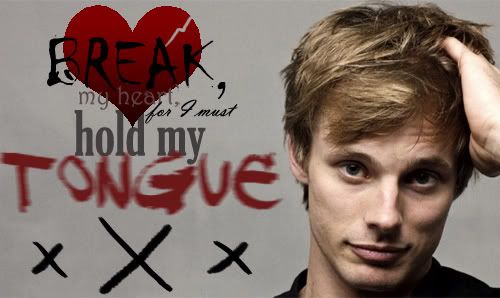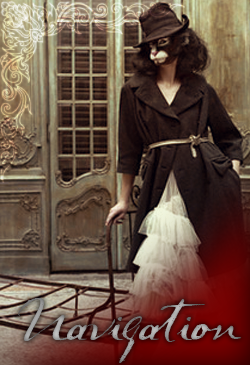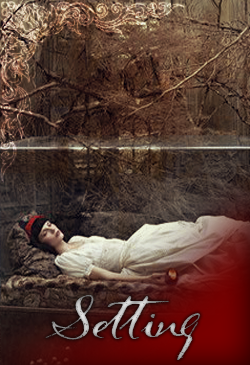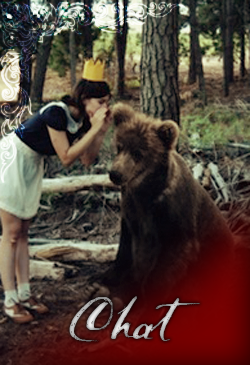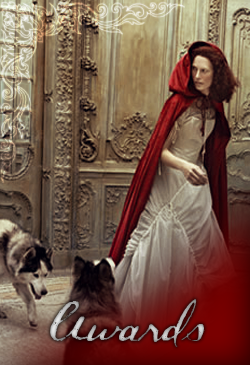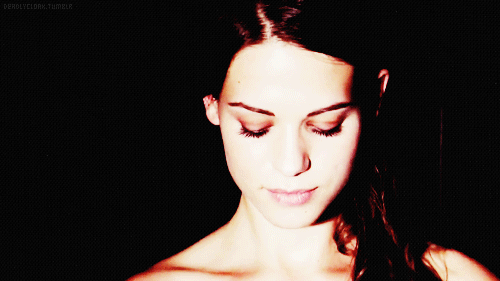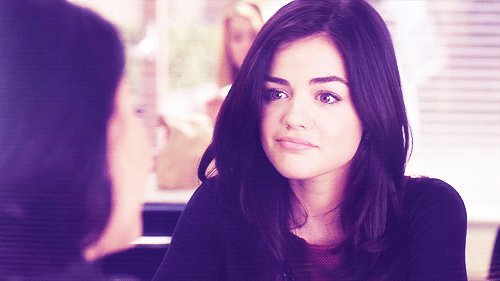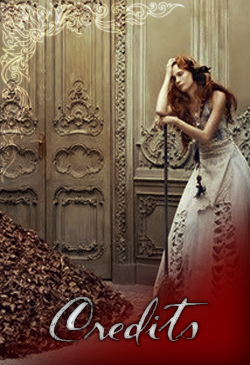Post by JULIAN SORENSEN on Jan 30, 2012 23:02:32 GMT -5
...julian christer sorensen *
* How weary, stale, flat, and unprofitable seem to me all the uses of this world! *
[/size]* How weary, stale, flat, and unprofitable seem to me all the uses of this world! *
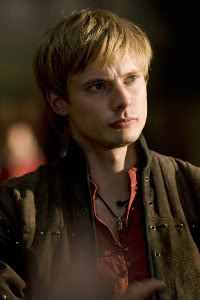
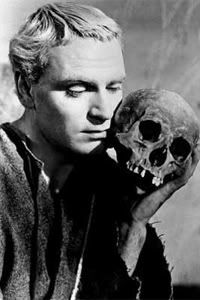
...basics*
name Julian Christer Sorensen (formerly Julian Christer Sørensen)
nickname He prefers Julian, but he gets “Jules” a lot.
age Twenty
gender Male
grade College junior
hometown Copenhagen, Denmark
sexuality Largely depends on his mood, but is usually interested in men and/or women.
personification Hamlet, Prince of Denmark
status Not entirely dormant, but not awake either. (Just classify him as dormant for now.)
face claim Bradley James
...appearance*
hair color Dirty golden-blonde color. It’s usually shaggy and messy, but never too long.
eye color Sky blue and thoughtful.
build Leanly muscular. He works out a bit to keep that figure.
height 5’10”
clothing style He tends to dress like something between prep and metro. Typically, he wears a lot of polo shirts, sometimes blazers, as well as skinny jeans, peacoats, and scarves. He is almost always well-dressed and is rarely seen in public unless he looks sharper than a doctor’s best needle.
distinctive traits A scathing sense of humor, a slightly morose attitude, and those thoughtful blue eyes.
...personal*
personality
Prior to the death of his father, Julian, for all intents and purposes, was a very normal teenage boy, at least on the outside. He liked pretty girls, cars, and parties, and he didn’t care much for school. He had a wide circle of friends, he was popular amongst his peers, and he had a winning smile. Of course, Julian has always been very good at pretending, even before his father’s tragic passing, so the fact that he seemed to be a normal boy during his father’s antemortem period doesn’t say much about him.
The fact of the matter is that Julian has always been filled with potential. He is charismatic, talented, thoughtful, and intelligent. He knows what people want to hear, and he knows just how to say it to them. He knows how to act in what situations and what to say, what faces to make. He knows music, art, literature, and math. He has always been thoughtful, deeply philosophical, always the type to carefully consider his every option before taking action – rashness is never a characteristic that has defined him. His thought process is complicated, but almost always rational, as he has been raised to base his judgments on sense, logic, and reason. In fact, looking at his upbringing and the inner workings of his mind, Julian comes off as almost cold, an analyzing, thinking machine.
But this is not true. Though he has always been rather secretive about his feelings due to his upbringing, Julian feels emotions just as strongly as everyone else, if not even more so. He is passionate about the things that interest him and the people that he cares about. When he is sad, it shakes his entire world, and when he is happy, then everything seems to go his way. Of course, God forbid anyone know that about him – it is a side of him he keeps very close to his chest. His upbringing was strict, with an emphasis on the idea of “manliness,” an ideal that did not include wearing one’s heart on one’s sleeve. For that reason, Julian has always been guarded about his emotions, no matter how powerful they may be.
Julian is physically fit and has been trained from a young age in the discipline of fencing, which has made him far more talented with a blade than most people tend to be in the 21st century. Due to his athleticism, he has participated in school sports in the past, but his recent apathy has generally prevented his former sense of competition from returning. He has also begun to abuse the charisma and charm that made him so popular in the past, utilizing his exceptional acting abilities for the purpose of manipulation for his own purposes. His sense of sarcasm, though previously present, has been intensified to the point of his seeming overly acerbic, incredibly cynical, and occasionally cruel.
In general, Julian’s grief over the recent death of his father seems to have culminated into a general state of ennui. For instance, in the past, he often pretended that his studies did not matter to him to keep up appearances, when, in fact, he was never anything less than dutiful, be it in regards to his grades or his parents. He was especially devoted to his father, with whom he had a very close bond, though one could question how much the strong-willed Christer understood his sensitive son. However, it was never just this inherent sensitivity that so reduced Julian’s potential – it was also his suspicion.
Julian has become distrustful of everyone in his life. He was always the judgmental type, a bit arrogant and condescending at times, but recent developments have made him downright paranoid. After his father’s death, his mother married his uncle, who Julian suspects of being his father’s true murderer (though he has no evidence to back this up). This strange new family situation has made him spiteful, obsessed with the idea that this was all some great plan, from the workings of which he was excluded for fear he should stop it. Finding out the truth of what happened to his father seems to be the only thing in his life that matters to him now. His sense of duty has all but disappeared – he has become uncaring, unruly, and uncontrollable, much to the distress of his mother and stepfather.
His opinions on humanity, once so vivid and positive, have become strained and two-sided – part of him cannot get over the cruelty of man, the animalistic simplicity, what ogres they truly are, while the other side reflects on the beauty of all man has accomplished, all he is capable of. His perspective on life has become similar. He doesn’t know what it all means anymore, whereas once, he was at peace with the world.
In addition, Julian’s psyche has resolved itself to crushing depression, of which his apathy is a symptom. Once, he could see the world as colorful and promising, but now, everything seems gray and lifeless. Cynicism has consumed him. He is stricken by the idea that his father may have been murdered and he is doing nothing about it – the police investigation of Christer’s death, he believes, was falsified. The entire situation has ultimately left him feeling helpless, as his father was his one true friend in his life, regardless of whether or not the man fully comprehended him. His father was demanding, but supportive, proud, but honest. He never lied to Julian, which is more than Julian could say for his uncle or his mother, who constantly seem to feed him misinformation to calm him down. A burning hatred towards his uncle and a cold anger towards his mother have both developed in the wake of his father’s mysterious passing. Overall, he has become unstable.
It is true, however, that beneath the angry and sorrowful and paranoid exterior he now bears, within the labyrinth of his mind, he is honestly a good person. Though he thinks of murder and revenge almost daily, he is truly strained and worn out by the whole situation – he wishes it would go away, but his duty to his father prohibits inaction. He is scared and feels as if he is utterly alone in the world, with not a single person on his side now that his father is gone. He was always a caring boy, and he hates that he can’t trust anyone anymore. He hates himself for being unable to save his father and being unable now to seek revenge for him.
And above all, he hates the psychopath he knows he’s becoming.
past
Julian Sørensen was born in Copenhagen on a rainy day. He was a surprisingly normal child; healthy, two loving parents, blonde hair, blue eyes. Apart from being rather wealthy, bright, and (as time showed) fairly attractive, Julian was quite the norm. He grew up attending a nice private school in Denmark and spending time with his parents; he became especially close to his father, Christer, a successful businessman, who taught him things like fencing and how to manage money, as well as how to be a man.
Being an only child, Christer spent a lot of time with his parents when he was at home, and his relationship with his father only grew. Though Christer was a strict disciplinarian, he was also incredibly wise, and honestly had the best intentions. Julian knew this; he respected no-one else in the world more than his father, trusted no-one more. He looked up to his father like he would look up to no-one else in his life.
His family didn't travel much apart from his father occasionally flying solo on a business trip, so most of Julian's world was confined to Denmark, particularly Copenhagen. He didn't really mind. Julian liked the consistency of it, the stability of his life. He liked being normal. He was planning admirably for the future, getting good marks in school, and was fairly popular, with a wide circle of friends.
Then, the day after Julian's seventeenth birthday, Christer Sørensen, the infallible entrepreneur, was found dead.
The police reported it was a standard accidental death. Christer had a pet snake, a cobra, and he got a bit clumsy while he was playing with him. He was bitten. He died a painful death via neurotoxin before anyone knew what was going on.
But Julian knew that could not be true. His father was too careful for that ever to happen. Ever.
Julian fell into a deep depression. Despite meetings with therapists and grief counselors and a mother desperately trying to get her son to talk with her, he hit bottom within a week and stayed there. The situation was only worsened - severely - when his mother announced that she would be marrying Julian's uncle, Xenius, in order to ensure the safety of the corporation after Christer's death. Julian regarded this as complete bullshit, but he stayed silent, drawing farther and farther into himself. He lost most of his friends. His grades plummeted. He locked himself in his room for days and refused to come out. The death of his father destroyed him.
Several months later, when Julian was nearing eighteen, Gerta and Xenius announced that they would be moving to America in the company's interests. Julian lashed out. He had become quick to anger when it came to change. He did not want to leave Denmark; along with an old switchblade and some clothes, Copenhagen and their big house was all he had left of his father. But his "parents" were insistent, and before long, Julian found himself being dragged off to America against his will, as he was, unfortunately, not yet legally able to make his own decisions.
Julian hated having to speak so much English on a daily basis. He had learned it since childhood and knew it rather well - his father had helped him learn it - but he preferred to speak Danish, the language he had grown up with. He hated the American teachers and the American classmates in his new American school. He hated that they changed their name from Sørensen to Sorenson because there was no “ø” in a nice American name. He hated everything and everyone. He wanted to go home. He wanted his father back.
He wanted to die and have the whole thing just go away.
He slogged his way through senior year of high school and was accepted to J Barrie University. Relieved to be away from his "family" but feeling no less unhappy, he began to seek new ways to fill the empty space he felt within himself. He felt like an unanswered question. He hated that feeling.
All he wanted was a solution.
present
Being away from his “parents” has eliminated a major stressor in Julian’s life and has settled him slightly from the frantic mess he was becoming, but it has not solved the threat of mental illness. He is still preoccupied by the death of his father and his uncle’s possible involvement, all Xenius stood to gain, all his mother stood to gain. It is distracting, maddening, and Julian can think of nothing but finding the truth and seeking revenge.
However, on the outside, he tries to conduct a normal, albeit a bit self-destructive, college student life. He goes to parties and gets wasted. He sleeps with a lot of different people. He smokes too much – it keeps him from getting too anxious. He tries to maintain good grades and friends. But his depression and morose attitude is stifling his potential. Until he receives some closure, his instability remains a serious problem, and a threat to the safety of those close to him.
family
Christer Sørensen, father, CEO of a large Danish-based company, deceased
Gerta Sorenson, mother, 51, housewife and heir to a small fortune (old money)
Xenius Sorenson, uncle/stepfather, 53, new CEO of Christer’s company
likes
Humanity
Fencing
Film noir
Philosophy
Thinking
Reading
Kierkegaard, Rousseau, and Nietschze (favorite philosophers)
Edgar Allan Poe
Silent movies
Denmark
Retribution
Leather
Debates
Salty food
His father
dislikes
Humanity
Politics (though he is very opinionated in them)
Most sweed foods
Ridiculous, airheaded people
His uncle
People who talk too much
Small animals
Bright colors
Bad fashion
Travel
Inability or disinclination to move or act
His uncle
Lies and deception (unless absolutely necessary)
Little dogs that bark a lot
Shitty books and trite infotainment
His uncle
other notes TEXT HERE
...literature*
book title Hamlet, Prince of Denmark by William Shakespeare
backstory Hamlet is the son of the King of Denmark. However, his father has recently died at the beginning of the play some time after acquiring land from the king of Norway, and Hamlet’s uncle, Claudius, has now become king and married Hamlet’s mother, Gertrude. A few soldiers at the castle start seeing a ghost that looks like Hamlet’s father around the castle at night, and when Hamlet goes to investigate, the ghost tells him that he is indeed the spirit of Hamlet’s departed father, and that he was murdered by Claudius. Hamlet, immediately convinced by the words of this ghost, sets out to convince himself of Claudius’s guilt. In the process of his revenge quest, he ends up murdering Polonius, a court advisor, and driving Ophelia, his lover and the daughter of Polonius, insane – Hamlet is most likely responsible for Ophelia committing suicide. Claudius has a plot to kill him that he created with Laertes, the son of Polonius and brother of Ophelia, but at the end of the book, Laertes kills Hamlet (though he does apologize before he and Hamlet actually die), Hamlet kills Claudius and Laertes, and then Hamlet dies in Horatio’s arms, telling him to tell his story. That’s a very bare-bones description of the play.
...roleplayer*
name Zeeeeldddaaaa
age TEXT HERE
gender TEXT HERE
rp experience TEXT HERE
how you found ouac TEXT HERE
rp sample AT LEAST THREE PARAGRAPHS


